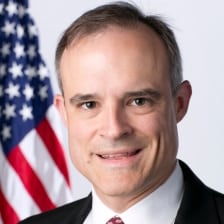
President Obama issued an executive order on Wednesday that would allow the U.S. government to impose sanctions on foreign entities that engage in malicious cyber activities that create a significant threat to the United States.Obama declared the increasing severity of malicious cyber attacks from entities outside the United States a national emergency, prompting the executive order.The order authorizes the Secretary of the Treasury, in consultation with the Secretary of State and Attorney General, to impose sanctions when the activities are…

 By
By 









